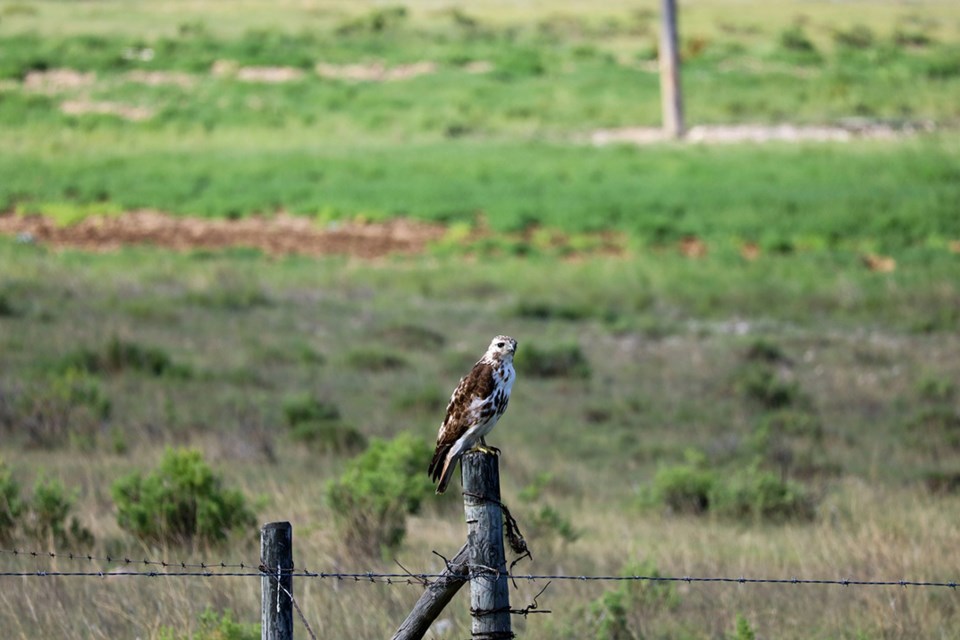REGINA — Producers made significant progress this week, with seeding now 77 per cent complete in Saskatchewan. This is behind the five-year average of 91 per cent and the ten-year average of 89 per cent. Crop emergence is reported as excellent to good condition and topsoil moisture shows improvement over past year.
The southeast is the furthest advanced in seeding progress at 84 per cent complete. This is followed closely by the southwest at 83 per cent and the northwest at 80 per cent. The east-central and west-central regions are 73 per cent and 71 per cent, respectively. The northeast region has completed 68 per cent of their seeding operations.
Provincially, seeding progress is the furthest ahead for field peas and lentils at 92 per cent and 91 per cent complete respectively. Chickpeas and soybeans are reported at 78 per cent and 51 per cent. For cereal crops, durum and spring wheat are the furthest ahead at 87 per cent and 84 per cent, respectively. Barley is at 76 per cent followed by oats at 67 per cent. Triticale and canary seed are both 66 per cent. For oilseeds, mustard is 78 per cent followed by canola at 71 per cent and flax at 67 per cent. Perennial forages are at 49 per cent complete.
Rainfall was variable across the province with many producers in the northern regions experiencing increased amounts. The highest reported rainfall was in the Sonningdale area at 45 mm. The Battlefords and Radisson areas received 36 mm and the Rose Valley area received 33 mm.
Overall, topsoil moisture is still showing improvements over previous years. Cropland topsoil moisture is three per cent surplus, 89 per cent adequate and eight per cent short. Hayland topsoil moisture is two per cent surplus, 85 per cent adequate and 13 per cent short. Pasture topsoil moisture is very similar with two per cent surplus, 83 per cent adequate, 13 per cent short and two per cent very short.
Producers continue to report good crop emergence across the province. Of the crops that have emerged, the majority are reported in excellent to good condition. Lentils are rated in the best condition with 37 per cent of the crop rated excellent and 59 per cent good. This is followed by field peas at 32 per cent excellent and 62 per cent good and chickpeas at 31 per cent excellent and 67 per cent good. Soybeans are rated at 95 per cent in excellent condition.
For cereal crops, winter wheat is estimated at 20 per cent excellent and 72 per cent good while fall rye is 15 per cent excellent and 77 per cent good. Durum is 32 per cent excellent and 63 per cent good followed by spring wheat at 26 per cent excellent and 65 per cent good.
Other cereal crops have also been rated as 小蓝视频 in mostly excellent and good condition. Triticale is rated at 33 per cent excellent and 60 per cent good, oats are 22 per cent excellent and 71 per cent good, barley is 28 per cent excellent and 66 per cent good and canary seed is 27 per cent excellent and 62 per cent good.
For oilseed crops, mustard is rated at 30 per cent excellent and 60 per cent good. Flax is 25 per cent excellent and 63 per cent good followed by canola at 24 per cent excellent and 63 per cent good.
Crop damage was minor with a few producers reporting light frost and areas with excessive water, but limited crop damage. Flea beetle and cutworm activity has been noted, with some producers taking control measures. Some regions have observed grasshoppers hatching but no current reports of crop damage.
Many producers anticipate that seeding will wrap up within the next week if the weather permits. Producers are also busy moving cattle to pasture, spraying, rock picking and land rolling.
As producers continue with seeding and field work operations, they are encouraged to take safety precautions in all the work that they do. The Farm Stress Line can help by providing support for producers toll free at 1-800-667-4442.
A complete, printable version of the Crop Report is available online - Download Crop Report at .
Follow the 2024 Crop Report on Twitter at @SKAgriculture.




